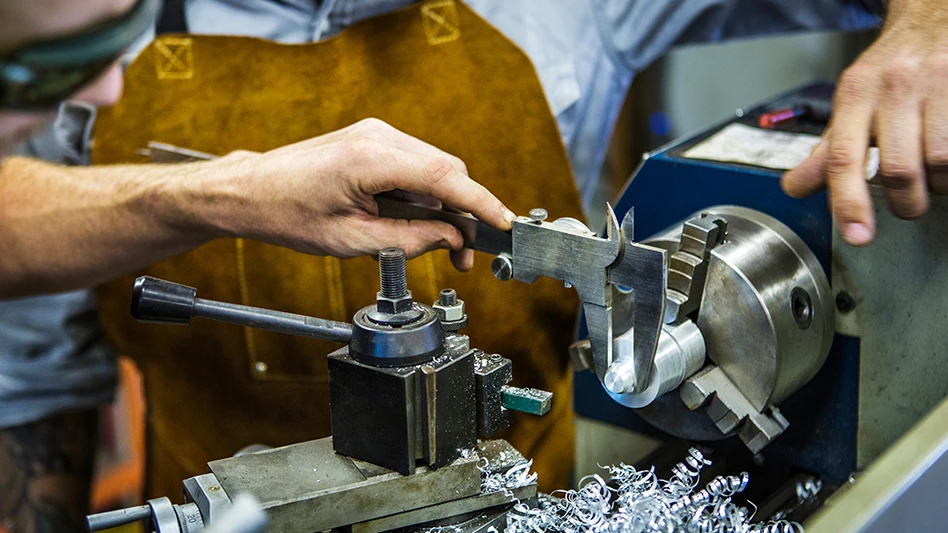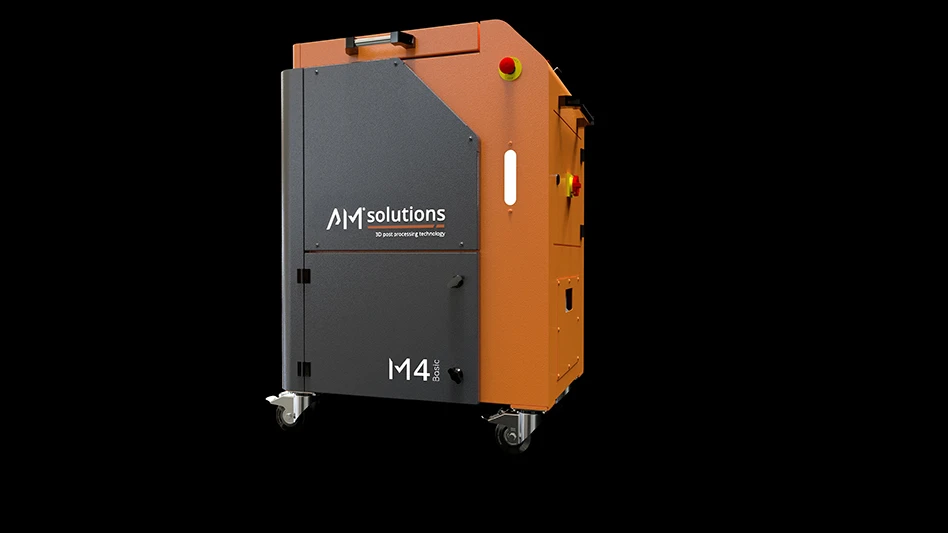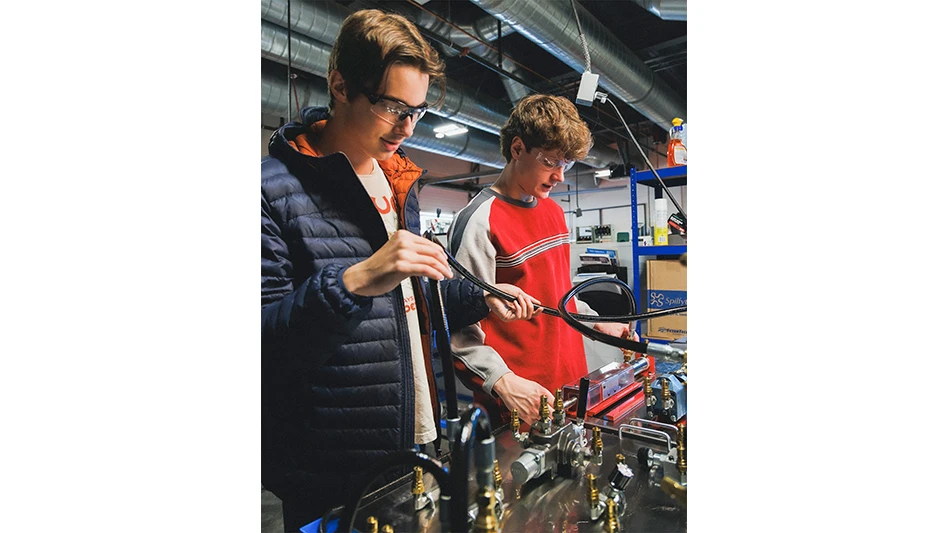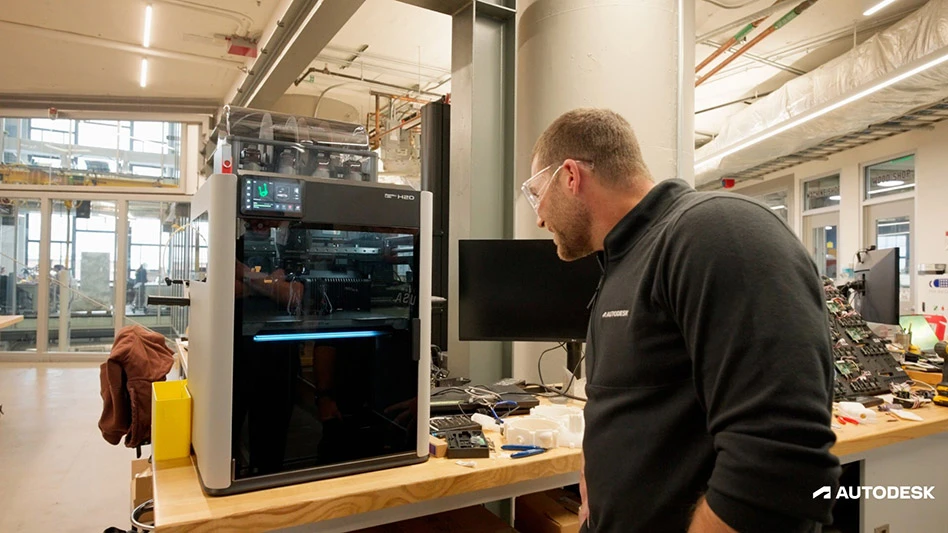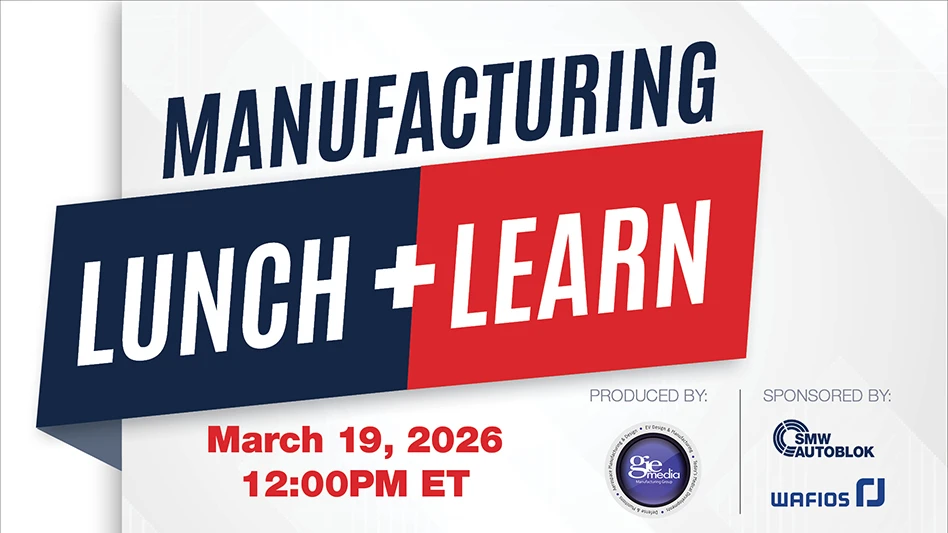Editor's Note: This article originally appeared in the May 2025 print edition of Today's Medical Developments under the headline “Solving the automation problem for high-mix, low-volume job shops.”

While technological advancements have meant a lot of great things for manufacturing, implementing them is often a rocky process. Many of those advancements involve automation, which is designed to simplify various processes and free up workers for other tasks – but for someone without a background in robotics, there’s nothing simple about setting up, programming, and maintaining these machines. That fact has spawned an entire industry segment of robotics integrators who specialize in installing and programming automation solutions for companies, as well as providing ongoing support and maintenance.
While these solutions may be well-suited to manufacturers in the business of mass production, automation is a trickier prospect for high-mix, low-volume job shops. These companies produce small quantities of often complex or customized items, each requiring a different process.
“The smaller shops might have 12, 15 parts, they might have 100 pieces the next week – a couple months down the line, they might have a whole new family of parts,” says Ethan George, sales engineer project manager for ProCobots. “So the last thing they want to do is have an automation system where it’s difficult and time consuming to set up a new part.”
That’s exactly the issue ProCobots was created to address. The company’s mission is to simplify automation, specifically for high-mix, low-volume CNC machine shops. Its products include robots and cobots for tasks such as pallet changing and general machine tending. A few years ago, ProCobots was acquired by Hurco, a CNC machine tool technology provider that, impressed with ProCobots’ approach, wanted to combine their talents to become, as George says, “a pioneer in CNC automation.”
The merged companies created several automation solutions tailored to Hurco machines, including the Automation Job Manager software that automatically calibrates a robotic system to any Hurco CNC machine, making it extremely simple to set up the system for a new part, thanks to a quick five-step process ProCobots developed involving the patent-pending Find Workholding routine. Rather than programming the system, the operator simply guides the robot by hand to place the part into the workholding or chuck on a lathe, teaching it what it needs to do for that production run – it can be easily retrained at any time. The part can be set up in five minutes, and there’s no need to have any programming knowledge or to call a robotics integrator.

A one-stop shop for troubleshooting & maintenance
Having the CNC machinery and automation system come from the same company simplifies the troubleshooting process if any issues occur – as does eliminating the need for integrators. With many manufacturing companies trying to set up automation, a sort of multi-party system arises that makes communication complicated. There’s the machine tool company, the robot provider, and the integrator. If there’s a problem, it’s usually the integrator who gets stuck playing the middleman between the machine tool and robot companies, trying to determine the source of the issue and juggling communication between all parties.
If a problem comes up with a piece of Hurco equipment, however, the customer only has to turn to one source for a solution.
“It’s all coming from one place,” George says. “We have our engineering team. We have our service and support team to troubleshoot issues and service the equipment, so that’s how we’ve fixed this issue for customers. They have a problem, they call Hurco, and we guarantee their success that way.”
Cobots offer heavy lifting in small packages
ProCobots’ most popular cobot automation package, according to George, includes the ProFeeder Tray, a machine tending system incorporating a heavy-duty base, large worktable, and a grid that can be swapped out to accommodate different sizes and numbers of parts. The modular design of the system appeals to high-mix, low-volume manufacturers with a wide variety of production needs. Typically, a UR10e cobot from ProCobots partner Universal Robots serves as the automated machine tender.
Other systems, such as the ProFeeder X, are composed of multiple drawers – typically five or 10, an alternative option for parts that can’t be stacked due to their geometry or other features. A robotic arm can be easily mounted to the machine to remove the finished parts; the recently released UR20 and UR30 cobots from Universal Robots, which have 20kg and 30kg payloads, respectively, introduce options for larger and heavier parts.

Cobots offer some clear advantages over more traditional industrial robots on the shop floor, especially in smaller shops. Cobots are very safe to work with – unlike industrial robots, they don’t require safety guarding, as they are equipped with a protective stop feature that prevents injury to human workers if the cobot bumps into them. Their compact size also makes them a great alternative for many job shops.
“A lot of job shops might be small,” George says. “They don’t have room for a massive system with the safety guarding for an industrial robot, so they have this pretty compact, maybe 1m x 1m footprint for an automation system, which is incredibly small.”
Automation for any situation
Many manufacturers, when discussing the benefits of automation, comment on how robots fill in the gaps left by an increasingly sparse workforce. With a lack of trained operators, the workers a company does have are overburdened, leading to lower production rates (not to mention worker exhaustion). Robots don’t get tired, though, so they can keep loading and unloading parts at a steady rate while their human counterparts work elsewhere. The low-maintenance nature of ProCobots products is highly appealing to these manufacturers, who can quickly set up a cobot at a machine and let it go about its business churning out parts.
“They’re seeing higher production. They’re meeting their timelines more,” George says. “They’re meeting their lead times more efficiently and they’re just getting more parts out the door. That’s allowing them to take on more jobs because they have that increased output.”
Looking forward, Hurco plans to continue rolling out higher-capacity automation systems using the UR20 and UR30, as well as offering some industrial robotic solutions. A recently announced partnership with Kawasaki Robotics resulted in the integration of Kawasaki’s industrial robots into Hurco’s CNC controls, as well as plans for future products including robots to pick up and move pallets and fixtures.

Whether it’s a compact cobot that can be conveniently moved around a job shop floor or an industrial robot hefting heavy objects, ease of automation is key for Hurco. CNC machinists may be experts at machining, but they’re not necessarily experts in robot programming. Rather than overhauling trade school curriculum, why not meet workers where they are? Automation doesn’t need to be equivalent to rocket science, and Hurco is passionate about plug-and-play robotics so machinists can focus on what they’ve been trained to do.
“We’re the experts in automation and robotics, so we do all that behind the scenes for you,” George says. “We want to cover all the bases in automation and not just be for one type of application, because there’s more and more of a need for automation in these shops.”
Hurco Companies Inc.
https://www.hurco.com
ProCobots LLC
https://procobots.com

Explore the May 2025 Issue
Check out more from this issue and find your next story to read.
Latest from Today's Medical Developments
- NextDent 300 MultiJet printer delivers a “Coming of Age for Digital Dentistry” at Evolution Dental Solutions
- Get recognized for bringing manufacturing back to North America
- Adaptive Coolant Flow improves energy efficiency
- VOLTAS opens coworking space for medical device manufacturers
- MEMS accelerometer for medical implants, wearables
- The compact, complex capabilities of photochemical etching
- Moticont introduces compact, linear voice coil motor
- Manufacturing technology orders reach record high in December 2025
